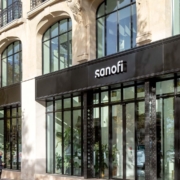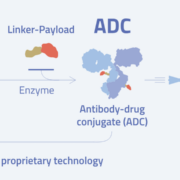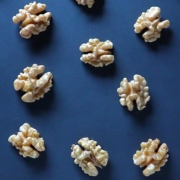A surprise move from Darmstadt to Paris: outgoing Merck CEO Belén Garijo is set to take the helm at French pharmaceutical group Sanofi after Paul Hudson unexpectedly failed to secure a contract extension from the board.
ADVERTISEMENT
French biopharma THX Pharma has signed a strategic licensing deal with Biocodex, an independent French pharmaceutical group, to advance two drug candidates in three rare genetic disorders with high unmet need.
Cambridge-based Microbiotica’s ulcerative colitis (UC) candidate met its primary and secondary phase 1b study objectives on safety, efficacy signals and bacterial engraftment. The company has reported positive results from a small, placebo-controlled study of its oral precision microbiome therapy MB310 in patients with mild-to-moderate ulcerative colitis, adding a rare positive clinical signal in a disease area where microbiome approaches have so far struggled to gain traction.
Zurich-based oncology biotech Araris Biotech AG has entered into a research collaboration with an option to license with Japan’s Chugai Pharmaceutical, a subsidiary of Roche. The aim of the partnership is to develop next-generation antibody–drug conjugates (ADCs). While Araris itself is now Japanese-owned – a wholly owned subsidiary of Taiho Pharmaceutical, part of the Otsuka Group – its research activities remain firmly rooted in Zurich. That presence was highlighted last year when the Strüngmann brothers, German billionaire twins, awarded a prize to the company’s founders.
The Australian–Swiss plasma specialist CSL is relying on technology from Switzerland for recombinant polyclonal immunoglobulins (IgG). With Memo Therapeutics, the company has entered into a collaboration and option agreement with a total potential value of up to CHF 265 million. This is good news for Memo, while CSL, following substantial job cuts including in Marburg, could also use some different headlines for a change.
After more than a decade of failed drug development efforts, osteoarthritis remains one of biopharma’s most stubborn challenges. Despite affecting more than 600 million people worldwide, no therapy approved in Europe or the United States has yet been shown to slow or modify disease progression. Against that backdrop, 4Moving Biotech (4MB) is betting that a familiar drug class, GLP-1 receptor agonists, can succeed where others have fallen short.
Bayer can report a success in stroke treatment, even though an earlier study with the same compound had been discontinued due to limited benefit. The approach of inhibiting factor XIa represents a first-in-class example from Leverkusen. Whether the data will be sufficient for regulatory approval remains to be seen.
Aerska, a biotechnology company focused on RNA medicines for brain diseases, has raised €32 million in a Series A financing to advance its lead technology toward clinical development. The round was co-led by EQT Life Sciences through its LSP Dementia Fund, alongside age1, and brings the company’s total funding to €50 million since its seed round in October 2025.
Two of the U.K.’s largest life sciences real-estate projects have moved forward within days of each other, with major expansion plans unveiled in London and Cambridge as both regions look to add new laboratory and research capacity.
Stockholm-based BioArctic is receiving SEK 127 million (about €11.9 million at today’s exchange rate) in royalties from the Alzheimer’s disease therapy Leqembi (lecanemab).


 SANOFI
SANOFI
 Microbiotica
Microbiotica Araris Biotech AG
Araris Biotech AG Freepik.com
Freepik.com
 © Bayer Leverkusen
© Bayer Leverkusen

